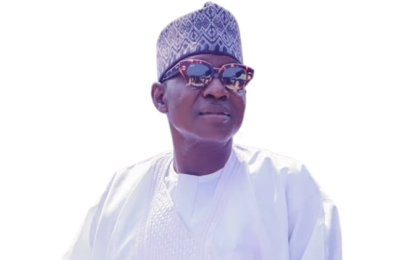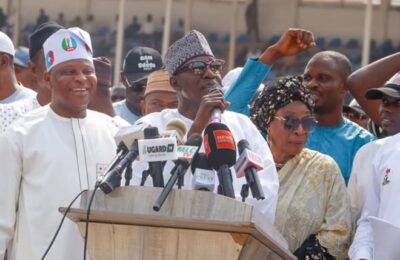By Musa Bakare
The best way of highlighting the gift of God in the life of any man is by documenting his positive contributions to humanity.
At 73 and in less than two years in office, President Asiwaju Bola Ahmed Tinubu continues to solidify his legacy as a transformative leader, steering Nigeria towards unprecedented progress. His administration’s commitment to infrastructure, economic revitalization, security, and governance reforms is yielding visible results.
The progress noted under President Bola Ahmed Tinubu’s administration highlights giant strides in infrastructure, economic growth, and security improvements.
The very ambitious Sokoto-Badagry Highway is progressing steadily, now reaching Kebbi State, while the Lagos-Calabar Coastal Highway is advancing towards Ondo State—a game changer for coastal transportation and trade.
These projects exemplify the administration’s focus on expanding Nigeria’s transportation network, which is essential for economic development and connectivity. The reduction in fuel prices and inflation, coupled with an increase in the minimum wage and access to student loans, indicates a responsive economic policy aimed at improving the living standards of Nigerians.
Under President Tinubu’s watch, fuel prices have significantly dropped to an average of ₦800 per litre, alleviating the economic burden on citizens. Additionally, four hundred thousand students are now benefiting from the student loan program, ensuring access to higher education and empowering the youth.
The administration’s economic policies have led to a historic increase in the national minimum wage, now set at ₦70,000, significantly improving the earning power of Nigerians. Food prices are beginning to stabilize, while inflation has dramatically reduced from 34.80% to 24.48% as of February 2025.
Power generation has also reached an all-time high of 6,003MW, enhancing productivity and reducing reliance on alternative power sources.
Federal allocations to states have doubled and, in some cases, tripled, ensuring better resource distribution and state-level development.
Deaths from terrorism and insecurity are at their lowest levels since 2014, a testament to the administration’s strategic security initiatives. Additionally, Nigeria’s GDP grew by 3.8% in 2024, and the country recorded an impressive 209.6% increase in trade surplus to ₦18.86 trillion from ₦6.09 trillion in 2023.
More regions now have dedicated regional development commissions, fostering localized growth and infrastructural expansion, demonstrating a commitment to decentralized governance that caters to the unique needs of different areas within Nigeria.
A Brighter Future for Nigerians
Nigerians are earning more than they did in 2023.
Students are receiving better educational support than in 2023.
Citizens are safer than they were in 2023.
Nigeria generates more power than it did in 2023.
The statistics regarding power generation and trade surplus demonstrate an administration that is actively working to enhance the country’s economic performance.
To compare Jagaban with other political figures of failed policy navigation conveys a strong endorsement of the current administration’s great performance index, emphasizing that the ongoing progress and stability could be at risk if Nigerians support candidates associated with policies or actions seen as detrimental to the nation’s unity and security.
With this assessment of the many giant strides of President Tinubu, there is a clear indication that continuity in office and policy direction come 2027 is assured and vital for sustaining the gains made and furthering Nigeria’s development trajectory.
Happy birthday once again to our workaholic and unrelenting President and Commander-in-Chief. May God Almighty continue to bless you with sound health, greater wisdom, and the ability to take Nigeria to the lofty heights of our dreams.
– Hon. Musa Asiru Bakare, Member, Tinubu Support Group (TSG), writes from Lokoja, Kogi State capital.




